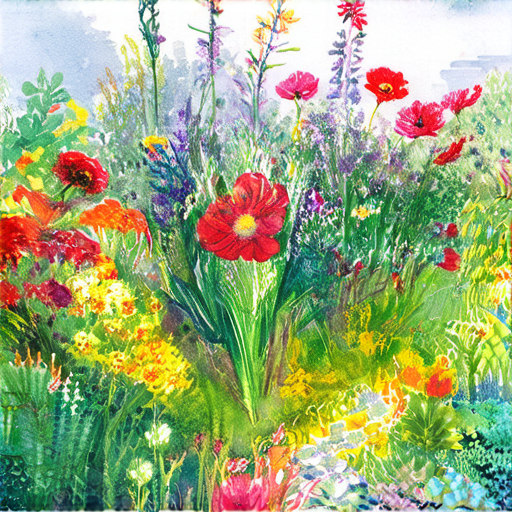Living a fulfilling life is often associated with happiness, success, and a deep sense of purpose. However, many people struggle to find meaning and joy in their daily experiences due to various factors such as stress, anxiety, and feelings of inadequacy. One powerful tool that can help individuals shift their perspective and cultivate a more positive outlook is the practice of gratitude. By focusing on what they already have, rather than what’s lacking, people can develop a greater appreciation for life’s simple pleasures and build stronger, more meaningful relationships with others.

The 4 As of Gratitude
I’ve learned that focusing on what I’m grateful for can shift my perspective and improve my overall well-being.
- Appreciation: Taking the time to acknowledge and appreciate the good things in my life helps me stay positive and focused on the present moment.
- Approval: Feeling approved and accepted by myself and others gives me a sense of belonging and confidence.
- Admiration: Showing admiration and respect for others helps me build stronger relationships and fosters a sense of community.
- Attention: Receiving attention and recognition from others can boost my self-esteem and motivation.
By incorporating these four elements into my daily life, I’ve noticed a significant improvement in my mental health and overall happiness.
As someone who values self-improvement and personal growth, I believe that practicing gratitude is essential for achieving a balanced and fulfilling life.
For more information on how to cultivate gratitude and improve your mental well-being, check out our articles on Mental Health and Self-Improvement.
Additionally, you may want to explore the work of Tracy Anderson, who emphasizes the importance of gratitude and self-care in her approach to wellness.
Remember, gratitude is a muscle that needs to be exercised regularly to see results. Make it a habit to take a few minutes each day to reflect on the things you’re thankful for.
The Gratitude Exercise
The gratitude exercise is a powerful tool for cultivating a positive mindset and appreciating the good things in life.
-
Reflecting on the Past Day
Start by reflecting on the past day, thinking about the experiences, interactions, and events that took place.
-
Focusing on the Good
Identify three to five things that you are grateful for, no matter how small they may seem.
-
Practicing Mindfulness
Take a moment to acknowledge and appreciate these things, allowing yourself to fully immerse in the feeling of gratitude.
-
Making it a Habit
Make the gratitude exercise a regular part of your daily routine, setting aside time each day to reflect on the good things in your life.
Benefits of the Gratitude Exercise
The gratitude exercise has numerous benefits, including:
- Reduced stress and anxiety
- Improved mood and overall sense of well-being
- Increased resilience and ability to cope with challenges
- Deeper connections with others and greater empathy
- Greater appreciation and gratitude for life’s simple pleasures
Getting Started
To get started with the gratitude exercise, try the following:
- Set aside a quiet and comfortable space to reflect
- Close your eyes and take a few deep breaths
- Think about the past day, recalling the experiences and events that took place
- Identify three to five things that you are grateful for
- Take a moment to acknowledge and appreciate these things
- Make the gratitude exercise a regular part of your daily routine
Conclusion
The gratitude exercise is a simple yet powerful tool for cultivating a positive mindset and appreciating the good things in life.
By incorporating the gratitude exercise into your daily routine, you can experience the many benefits it has to offer, from reduced stress and anxiety to improved mood and overall sense of well-being.
Remember, the key to making the gratitude exercise effective is to approach it with sincerity and authenticity, truly acknowledging and appreciating the good things in your life.

What Are the Three Good Things Gratitude Exercises?
I’ve found that incorporating gratitude into my daily routine has been incredibly beneficial for my mental health and overall well-being.
-
The First Good Thing:
Each night before bed, I take a few minutes to reflect on the three good things that happened during the day. This could be something as simple as enjoying a delicious meal, having a great conversation with a friend, or accomplishing a task at work.
-
The Second Good Thing:
Writing down these positive experiences helps me to acknowledge and appreciate the good things in my life. By doing so, I’m able to shift my focus away from negative thoughts and cultivate a more optimistic mindset.
-
The Third Good Thing:
Reflecting on my role in why these good things happened allows me to recognize my own strengths and abilities. This helps me to develop a greater sense of self-awareness and confidence, which can have a profound impact on my relationships and overall happiness.
By incorporating these three good things gratitude exercises into my daily routine, I’ve noticed a significant improvement in my mood and overall well-being. I encourage you to give it a try and see how it can positively impact your life as well!
For more information on how to incorporate gratitude into your daily routine, check out our article on Gratitude Journaling.
Additionally, you may want to explore other mindfulness techniques and wellness practices, such as meditation and yoga, to further enhance your mental and physical health.
Remember, taking care of your mental health is just as important as taking care of your physical health. By prioritizing your well-being and making small changes to your daily routine, you can set yourself up for success and live a happier, healthier life.

Practicing Gratitude: A Guide to Cultivating Appreciation
As we navigate our daily lives, it’s easy to get caught up in stress and negativity. However, incorporating a gratitude practice into your routine can have a profound impact on both mental and emotional well-being.
-
Step 1: Reflect on Your Day
Take a few minutes each evening to reflect on the events of the day. Think about the people, experiences, and moments that brought you joy and appreciation.
- Write down three things you’re thankful for, no matter how small they may seem.
- Consider why these things are important to you and how they’ve positively impacted your life.
- Reflect on how you can apply this sense of gratitude to future situations.
Step 2: Practice Mindfulness
Mindfulness is the practice of being present in the moment, fully engaged with your thoughts, feelings, and surroundings. By cultivating mindfulness, you can increase your awareness of the present moment and appreciate its beauty.
- Start a mindfulness journal to record your thoughts, feelings, and observations.
- Practice deep breathing exercises to calm your mind and center yourself.
- Engage in activities that promote mindfulness, such as meditation, yoga, or walking in nature.
Step 3: Share Your Gratitude
Sharing your gratitude with others can deepen your connection and strengthen relationships. Expressing thanks to those who have made a positive impact in your life can bring joy and appreciation to both parties.
- Write thank-you notes or emails to express your gratitude to friends, family, or colleagues.
- Share your gratitude with loved ones through conversation or small gestures.
- Volunteer or participate in acts of kindness to spread gratitude and positivity.
Additional Tips for Cultivating Gratitude:
Remember, gratitude is a muscle that needs to be exercised regularly. Here are some additional tips to help you cultivate a deeper sense of appreciation:
- Keep a gratitude jar to collect notes and reminders of things you’re thankful for.
- Create a gratitude ritual, such as sharing gratitude during meals or before bed.
- Make gratitude a habit by incorporating it into your daily routine.
Conclusion:
Cultivating gratitude takes practice, patience, and dedication. By incorporating these steps and tips into your daily routine, you can develop a deeper sense of appreciation and live a more fulfilling life.
Teaching Gratitude to Adults
As we navigate life’s challenges and complexities, cultivating gratitude can have a profound impact on our mental and emotional well-being.
-
Practice Mindfulness
Mindfulness meditation can help adults cultivate a sense of gratitude by focusing on the present moment and appreciating its simple joys.
- Start with short meditation sessions, ideally 5-10 minutes, and gradually increase duration as you become more comfortable with the practice.
- Focus on your breath, body sensations, or sensory experiences to ground yourself in the present moment.
- When your mind wanders, gently acknowledge the thought and refocus on your chosen object of attention.
-
Reflect on Positive Experiences
Take time to reflect on positive experiences, no matter how small they may seem, to reinforce a sense of gratitude.
- Set aside dedicated time for reflection, whether it’s during your morning routine or before bed.
- Write down three things you’re grateful for each day, no matter how insignificant they may seem.
- Share your reflections with a trusted friend or family member to amplify the positive effects.
-
Cultivate Empathy and Compassion
Practicing empathy and compassion towards others can broaden our perspective and foster a deeper sense of gratitude.
- Engage in acts of kindness, such as volunteering or helping a neighbor, to cultivate feelings of connection and appreciation.
- Listen actively to others, focusing on their struggles and triumphs, to deepen your understanding and empathy.
- Practice self-compassion by acknowledging your own imperfections and limitations, allowing you to approach challenges with greater humility and gratitude.
-
Foster a Growth Mindset
A growth mindset enables us to approach challenges with curiosity and openness, leading to increased gratitude for the opportunities and experiences that arise.
- Emphasize effort and progress over achievement, recognizing that setbacks are an inevitable part of growth.
- View failures and mistakes as valuable learning experiences, rather than threats to ego or identity.
- Pursue lifelong learning, embracing new skills and knowledge to stay adaptable and open-minded.
-
Nurture Meaningful Relationships
Investing in meaningful relationships can provide a sense of belonging and purpose, fostering a deeper sense of gratitude.
- Schedule regular check-ins with loved ones, prioritizing quality time and meaningful conversations.
- Engage in shared activities or hobbies that bring joy and connection, strengthening bonds and creating lasting memories.
- Practice active listening and empathy in relationships, working to understand and appreciate the unique perspectives and experiences of those around you.
By incorporating these practices into your daily life, you can cultivate a deeper sense of gratitude and appreciation for the world around you.

The Gratitude Game
The Gratitude Game is a fun and interactive activity that fosters appreciation and connection among participants.
-
Here’s how to play:
-
Each participant draws a name from a hat or randomly selects a name.
-
On a separate card, they write down three things they’re grateful for about the person whose name they’ve drawn.
-
One person reads out the three things written on their card without revealing the name associated with it.
-
The remaining participants try to guess who the description belongs to based on the characteristics mentioned.
-
This game encourages empathy, active listening, and deepens relationships by highlighting the positive qualities and traits we appreciate in others.
Benefits of Playing the Gratitude Game
-
Fosters a sense of community and togetherness.
-
Encourages people to think positively and focus on the good aspects of others.
-
Helps develop emotional intelligence and empathy.
-
Can be played in various settings, such as families, teams, or social groups.
How to Make the Gratitude Game More Engaging
-
Set a timer to add an element of excitement and challenge.
-
Have participants explain why they chose each item on their list.
-
Create a visual display of the descriptions and see who can correctly match them with the names.
-
Making it a regular activity can help cultivate a culture of gratitude and appreciation.
By incorporating the Gratitude Game into our lives, we can strengthen bonds, promote positivity, and create lasting memories.

0 Comments